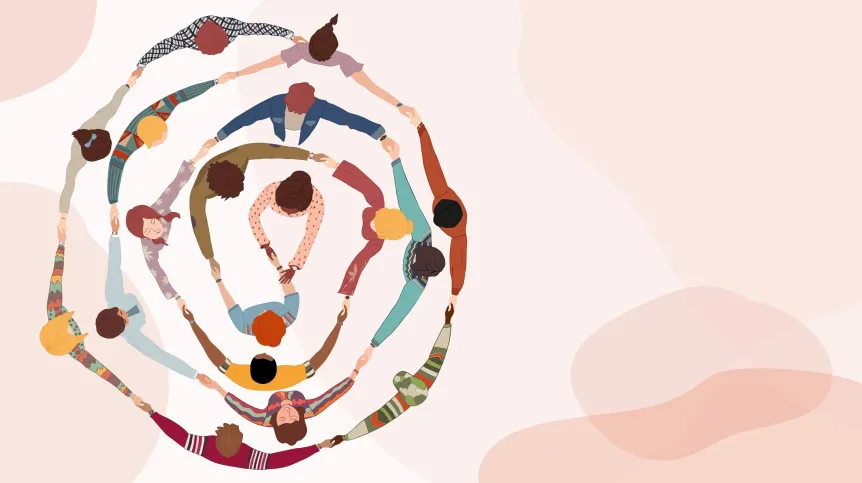
A recent survey conducted by the SWPS University sheds new light on an often overlooked aspect of Polish society: everyday kindness.
The study reveals that Poles report frequently showing kindness in their daily interactions, debunking some common stereotypes about their social behavior. The research, which coincided with World Hello Day on November 21, 2023, delves into the frequency of small but meaningful gestures, such as smiling, offering kind words, and maintaining a warm tone of voice in everyday encounters.
Everyday kindness, as defined by Olga Białobrzeska, PhD, the lead researcher behind the report, includes simple, sincere gestures that make others feel better, such as a warm "good morning," a smile, or expressing gratitude. This form of kindness, however, should not be confused with mere politeness or courtesy. While politeness is often socially motivated, everyday kindness is driven by a genuine desire to improve the well-being of others. "We show everyday kindness because we want the other person to feel good," explains Białobrzeska, contrasting it with courtesy, which is motivated by social norms.
Poles Are Kind—And They Know It
The results of the survey suggest that Poles are more inclined towards kindness than commonly thought. On a 7-point scale (where 1 represents "almost never" and 7 represents "almost always"), the average score for Poles’ self-reported kindness was 5.3, indicating that they often engage in acts of kindness. Remarkably, only 3% of respondents reported that they rarely or never show kindness.
Among the specific acts of kindness surveyed, the most common behaviors involved showing warmth in interactions with cashiers and customer service workers - 81% of respondents said they often smile and thank others while paying at a store, and the same percentage reported using a warm tone when interacting with customer service representatives.
Factors Influencing Kindness
The survey also found that place of residence, education level, and political views did not significantly affect the frequency of everyday kindness. Whether they lived in rural areas or urban centers, or whether they leaned left or right politically, Poles showed similar levels of kindness. This finding challenges the assumption that kindness might be more prevalent in certain regions or among particular social groups.
However, the researchers did observe a slight positive correlation between kindness and socio-economic status. Those who identified as having a higher social standing tended to report showing kindness more frequently, though the effect was modest.
Kindness and Quality of Life
The study also revealed a connection between kindness and the quality of life. Respondents who reported a higher quality of life were more likely to show everyday kindness. "It’s possible that when we feel good about our lives, it’s easier to be kind to others," said Białobrzeska. However, she also noted that this relationship could be bi-directional—that is, engaging in small acts of kindness might actually enhance one’s sense of well-being, even during difficult times.
Gender Differences in Kindness
The survey also found that women reported being kinder than men. On average, women rated their acts of kindness between "often" and "very often," while men rated themselves as "often." This could be linked to both biological and cultural factors, as women are often socially expected to display kindness more than men. However, Białobrzeska also pointed out that women may slightly overestimate their kindness due to these societal expectations.
Age and Kindness
Another finding is the correlation between age and kindness. Older people, especially retirees, were more likely to show kindness. This could be due to a greater sense of life satisfaction, free time, or simply a change in priorities as people age. The survey revealed that kindness increases slightly with age, and those who were retired showed the highest rates of everyday kindness.
Kindness Linked to Well-Being and Civic Engagement
The study also found that people who reported being kind on a regular basis also tended to have higher levels of life satisfaction, self-esteem, and self-confidence. They felt more effective in their daily lives and had a stronger sense of community. These individuals also expressed greater trust in others and a stronger sense of connection to society.
Interestingly, there was also a link between kindness and civic engagement. Those who showed kindness more often were also more likely to report an intention to participate in the upcoming parliamentary elections. They also expressed a greater belief in their ability to make informed decisions when voting.
The findings of the survey challenge common perceptions about Polish social behavior, showing that Poles are not only kind but also experience personal benefits from their kindness. The research suggests that small, everyday gestures of kindness can have a significant positive impact, not just on those who receive them, but also on the well-being of those who give. Whether it’s a smile to a stranger, a warm thank you, or simply being courteous in everyday interactions, the survey paints a picture of a society that values human connection, even in the smallest gestures.
As Białobrzeska concludes: "Kindness is not just about making others feel good; it can also improve our own sense of satisfaction and well-being."
The full results of the survey, which was conducted on a representative sample of 1,669 Poles in late September and October 2023, are available for further reading through the SWPS University website.
(PAP)
PAP - Science in Poland, Ewelina Krajczyńska-Wujec
ekr/ bar/ kap/
tr. RL













